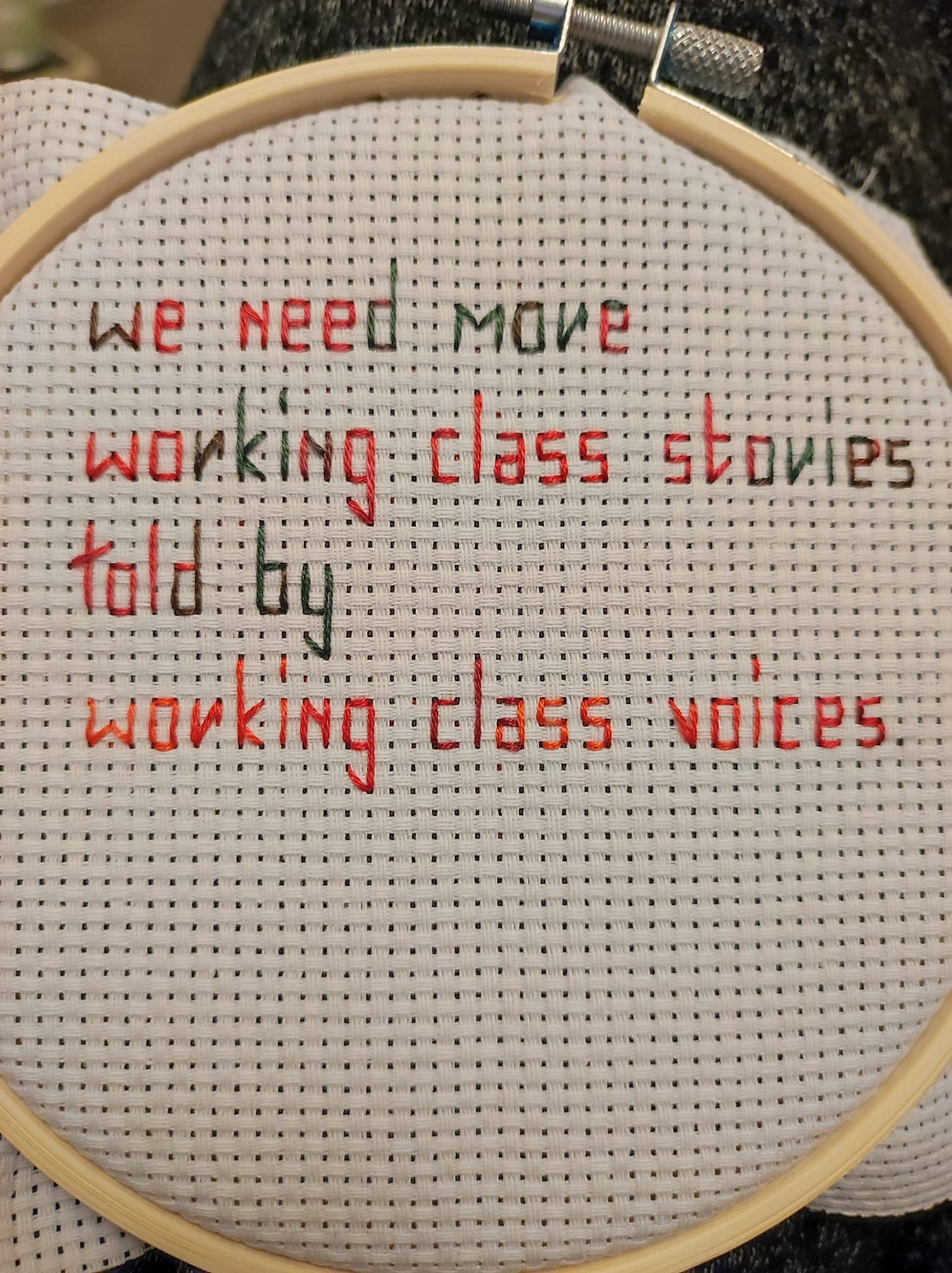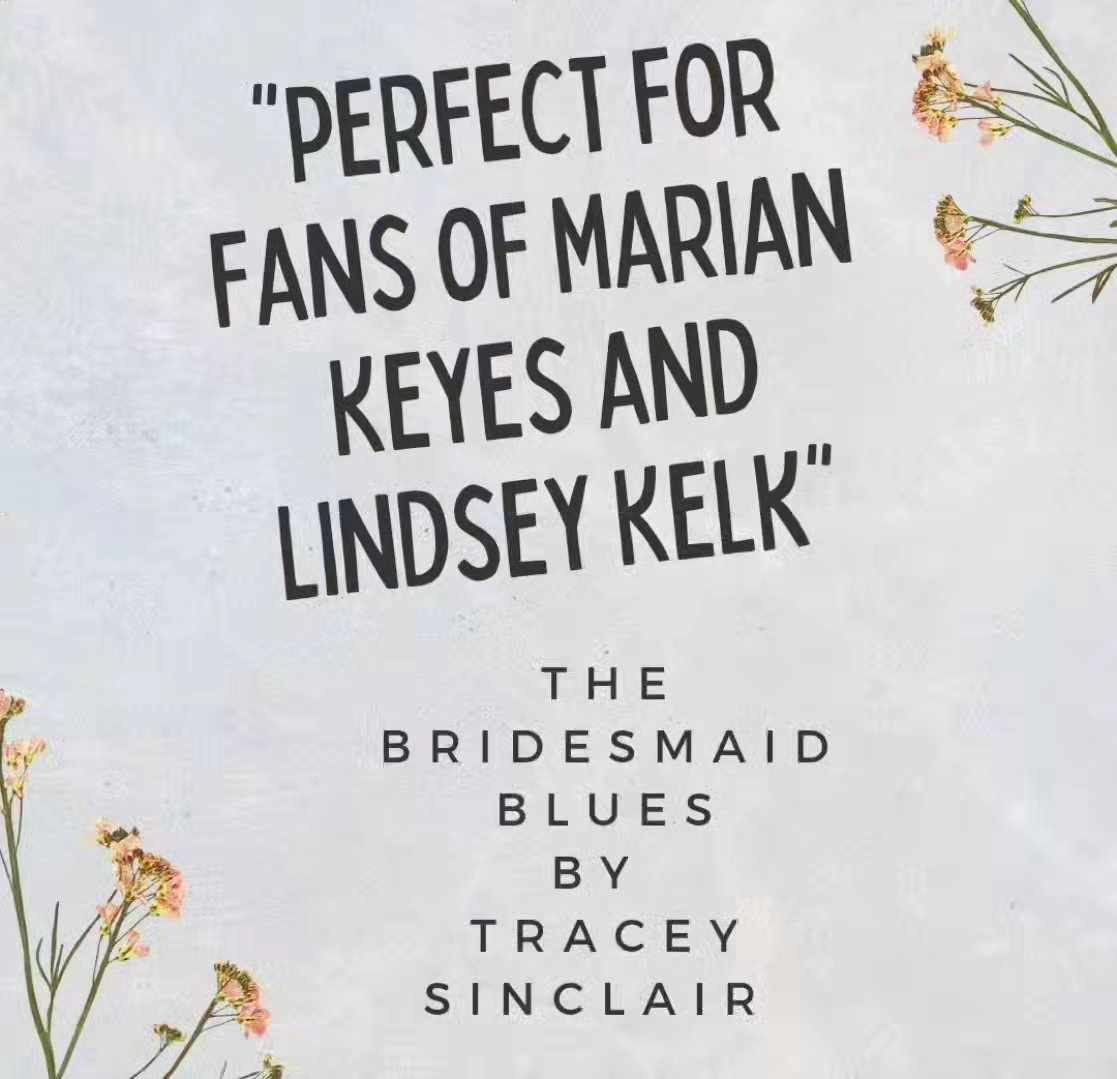Hello, and welcome to my Substack. Remember if you want to support my writing, you can do so by becoming a paid subscriber, buying me a one-off Ko-fi or buying one of my books. Or all of my books. You know, as a treat.
Something different this week! I’ve been run ragged with various life admin things, so thought I would use this as an excuse to post a story I wrote a while back and never quite got around to finding a home for.
It’s about all the ways women edit themselves - especially working class women, and women of colour - to fit in, to appease. (Though the story is, fairly obviously, written from the perspective of a white woman who perhaps understands why working class people and people of colour should be natural allies, but can’t quite articulate or act on that fact). It’s also fuelled by the frustration of being working class and working in the arts, so I am sure plenty of you can relate…
Anyway, if you enjoy, please consider supporting my work with a share, a nice comment or even buying me a Ko-fi or buying one of my books - all of which are currently 99p on Kindle! It’s really tough out here - any support welcome!
[Image description: cross-stitch - we need more working class stories from working class voices]
And if you’d like to read more diverse voices on the arts, do check out Exeunt’s excellent theatre coverage, or Natasha Tripney’s informed, insightful look at European theatre. Both have free and paid options.
The Daily Edit
She’s smiling, doesn’t want to be. Still, it’s easier than arguing, so Wendy swallows a bunch of words she has trained herself not to say and forces a grin, head ducked as she passes the catcaller, thinking what do you mean, it might never happen? You’re yelling at me. It just did.
Wendy’s late. Can’t walk fast in these shoes, office-appropriate though heels are. Her fingers burn against her black coffee from Pret, always too hot; she keeps meaning to ask for a splash of cold water but there’s always a queue, so she doesn’t like to impose. Hustling to the meeting, she follows her team – six junior women, two senior men – into the conference room.
Croissants on the table and Damien and Jonathan tuck right in, already talking through crumbs. The usual anxious glances as the women wait to see if anyone else will crack. Finally, Pippa, whose youth-fuelled metabolism has yet to desert her, reaches for one, so Lacey follows suit, tearing the pastry into small pieces, careful not to drop flakes on the dry-clean-only silk of her blouse. Talia pours coffee, joking ‘I’ll be mother!’, like one of the juniors always does, pretending that seniority not sex is the reason. But when she turns away from the guys there’s a set to her face that makes Wendy think when she’s boss, those boys will be pouring their own.
Taking notes without being asked to, Wendy tries not to show how these voices grate, with their polish and their poshness and their privilege and poise. Hard to believe publishing was her fantasy job, back in the bedroom of the Sunderland council house where she dreamed of cocktail parties with famous authors, of feeling at home in places she’d only ever seen on TV. This job was a lucky fluke, maternity cover for someone who had, she was sniffily informed at the interview, ‘gotten herself pregnant’. (Outspoken as she naturally was, even Wendy knew not to point out that someone else had likely also been involved in the pregnancy). Once in the door – learning to soften the Northern vowels that people mocked or couldn’t understand – it seemed too much for them effort to replace her, but by then the dream had soured.
Wendy had imagined bringing brave new voices into the world, but mainly she works with spreadsheets. She discovered not a landscape rich with creativity, but one where connections mattered more than talent and the same old people published the same old stories aimed at the same old audience. Her enthusiasm had been eroded as thoroughly as her accent, both resurfacing only rarely, fuelled by anger or cheap wine.
The usual lunch-time debate on where to eat, because someone’s always on some diet. Wendy brings in sandwiches, can’t understand how all these women on entry-level publishing salaries can eat out every day, though of course she can understand it really, it’s the same way they can all live in West London and go skiing every winter. She offers the convenient lie of work – London’s always-acceptable excuse – and stays at her desk with her Tupperware. She’s glad of the new girl Neela, who’s been lunching on 30-calorie cup-a-soups since she joined, gritting her teeth through the ‘Why diet? I’d love a booty like yours!’ comments from the Knightsbridge blondes, ignoring the touch of Croydon they put in their voices when they say it and pretending she hasn’t heard the ‘diversity hire’ whispers. Wendy wants to think they are natural allies, she and this other outsider, but isn’t sure Neela would agree, so mutual suspicion keeps their relationship cordial but cool. Still, she’s happy for even this camaraderie, and wonders if she should comment on the fact that Neela has started straightening her hair.
An afternoon of Saskia making personal calls that she somehow – Wendy knows how – gets away with, being the daughter of some friend of the boss with no fear of being disciplined, because how can you threaten to sack someone who doesn’t need a job? First to fiancé Nathaniel, a lengthy one-sided conversation when she does little but murmur agreement, then a follow up to a friend, where she loudly dissects all the ways that his call annoyed her. Nathaniel is something in finance; he buys Saskia lots of presents but never makes her laugh. The girls in the office coo over each gift and ignore that he’s about as much of a catch as a cold sore.
“Oops, coming through!” says the man who walks into her with a plate of canapes, expecting her to move out of his way. Wendy forces a smile because he’s some money guy who knows one of the editors and managed to swing an invite to this launch. Wondering again why it’s always rich people who get free things, she tries to make conversation with a suit who can’t decide whether he should be looking down her top or over her shoulder, sizing up the room for better options. She swallows cheap fizz and thinks about how her feet hurt and she hates this dress, bought in the sale for work events and usually worn twice before cleaning. It’s just out of the dry cleaner’s plastic and some bloke has already spilled salsa on it. She pretended not to mind.
She never admits it, but Wendy wanted to be an author, though school said that was an impossible goal for a benefits-family girl like her. Good enough at English to maybe be a teacher, they said, which in itself was a dazzling ambition at her comprehensive. She never writes anything longer than an Instagram caption now, so instead she goes to work-related book parties and spends an hour listening to three different men tell her about their novels. Writers they may be, but none of them know how to use a question mark.
Drunk lads on the tube bookend her day with another invocation to be cheerful, so she offers them a placatory grimace, her fake smile the price of a harassment-free journey home. By the time she opens the door to her flat, the scream is building to a swell in her chest. She drowns it with more wine, not wanting to wake her flatmates, and goes to sleep with it rasping at the back of her throat.
[Image description: flier for The Bridesmaid Blues by Tracey Sinclair]
Anyway, thanks again for reading – please do share with your friends! Every new subscriber really does give me a boost. And remember if you want to support my writing but a paid subscription isn’t for you (times are hard, I get it!), you can buy me a one-off Ko-fi or buy one of my books.
Remember: everything included is my personal preference / opinion, and while I strive to be accurate, I always advising checking with the relevant venue






Much enjoyed reading this thought- provoking piece Tracey. And on a parallel theme, and back to the theatre, did you catch Spitfire Girls at Darlington's Hippodrome? Much enjoyed it. Wonderful writing, authentic portrayal of characters you could believe in and care about while capturing the atmosphere (and bias) of the times to great effect. It deserves a decent run and would not be out of place in a London Theatre. Also loved that the programme was in the style of the long lamented Picture Post with contemporary 1940s advertisements.